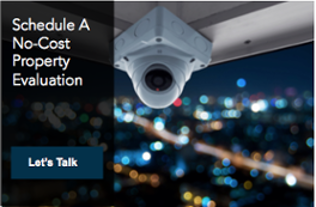 If you are seeking to implement a security camera system at your business, one of the decisions you may have to make is whether to opt for a digital (a.k.a. IP) camera, or an analog camera. Deciding on a digital vs. analog camera is not necessarily a cut and dry decision, as there are numerous pros and cons associated with each style of camera. In this post, we’ll briefly explore a few of these differences so you can determine which option is best for protecting your business.
If you are seeking to implement a security camera system at your business, one of the decisions you may have to make is whether to opt for a digital (a.k.a. IP) camera, or an analog camera. Deciding on a digital vs. analog camera is not necessarily a cut and dry decision, as there are numerous pros and cons associated with each style of camera. In this post, we’ll briefly explore a few of these differences so you can determine which option is best for protecting your business.
Analog Security Cameras
The key difference between analog and digital cameras is the method used to deliver the video signal. Analog cameras transform the video signal into a format that can be received by a television or other receiver (like a monitor). On the other hand, an IP-based camera, (sometimes referred to as network camera), is able to digitize the video signal by using a specialized encoder that contains an onboard web server. This function allows the digital camera to act as a network device, making it possible to capture video images that can be viewed not only through an existing network but also through a web browser that can be accessed through the Internet.
Benefits Of Analog Cameras
- Lower cost – typically, an analog system is more cost efficient and is sufficient for basic remote monitoring.
- Design flexibility– Analog cameras are available in a wide variety of design such as mini covert cameras to large PTZ models. If you have unique surveillance needs you may find it easier to find the style of camera you need in an analog model.
- Mixing & matching is easy – It is much easier to mix and match cameras and brands if you use analog versions. This can make it easier if you already have existing camera equipment that you wish to incorporate into your surveillance system.
Disadvantages Of Analog Cameras
- Short on certain features— A majority of basic analog cameras do not include advanced features like digital zoom
- Long distance applications are not easily supported— If you need to survey a wide area, analog cameras may not be your best choice as they are not typically accommodating for big distances.
Digital Security Cameras
Digital security cameras, commonly referred to as IP cameras, offer the latest technological advantages in surveillance. Digital cameras offer high resolution video, which is useful for surveillance, allowing for facial recognition, license plate recognition and the ability to zoom distances over 100 feet.
Benefits Of Digital Security Cameras
- You can utilize existing wiring— Since digital cameras act as their own network device, it’s not too difficult to take advantage of existing network wiring within your business. This can lead to an easier installation.
- Remote access is easier— Digital cameras are far better suited for remote surveillance needs.
Disadvantages Of Digital Security Cameras
- Higher initial cost— Since the additional technology is built into each camera, the cost to develop[ a new system is typically higher than analog versions
- More bandwidth is necessary— Digital cameras require more bandwidth than analog cameras
Now that you have a basic understanding of the pros and cons associated with each camera type, the decision really comes down to your specific budget and surveillance needs. With an accurate assessment of your needs, the decision of which camera type to go with will become much easier.
Is It Worth It To Make The Switch From Analog To Digital?
You may be debating whether it's worth the effort to make the switch from analog to digital cameras-- there are certainly a few points to consider. While the initial cost is often substantial, it's important to remember that an IP camera can take the place of 3-4 comparable analog cameras since IP cameras feature an increased coverage area.
If you're thinking about making the switch, consider that updating will allow you to connect more cameras per NVR than you would be able to connect to a DVR. Depending on the size of your system, you would be buying less recorders as well, as long as you keep an eye on the throughput and ensure that your NVR can handle it.
Essentially, if you're looking into updating your surveillance and security systems, IP cameras may be the way to go, especially if you want to be up-to-date. If you already have a system in place that satisfies your needs, you may want to refrain from installing an entire new system, at least at this point. But, there's no doubt about it: analog is quickly becoming outdated, so it may be time to step into the future.


